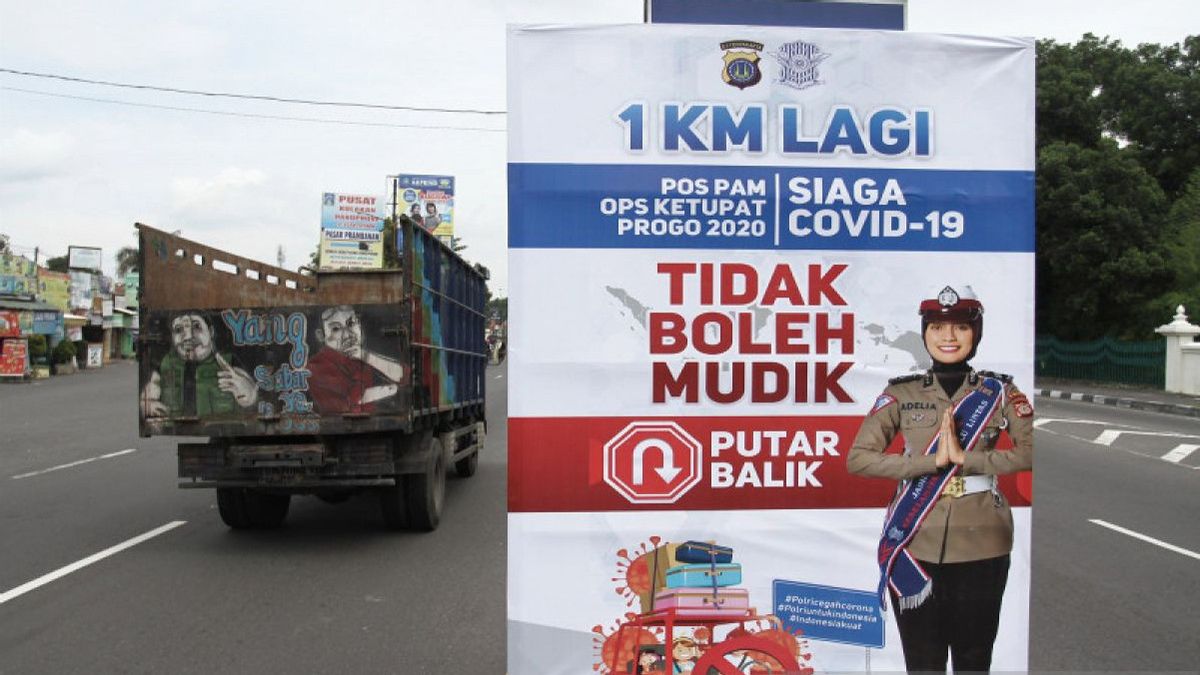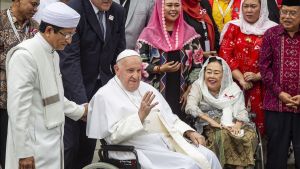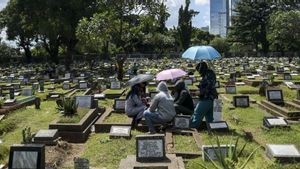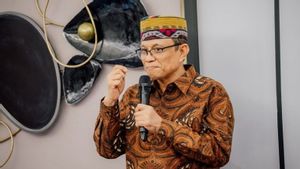JAKARTA Memories of today, four years ago, April 24, 2020, the prohibition on carrying out the homecoming tradition for all Indonesian people is officially applicable. This effort was made so that the spread of the corona virus did not spread massively. The government began to block border roads.
Previously, the Indonesian government was struggling to break the chain of virus spread from Wuhan. The steps taken have not shown success. The government's biggest test came: homecoming. An activity that can trigger the massive spread of the virus.
There is no country that does not fall up against the COVID-19 pandemic. All countries feel the devastating impact of massive spread of the corona virus. The impact is everywhere. The death toll from COVID-19 is increasing. The country's economy is in free fall.
The Indonesian government also agrees. The Indonesian government seems to be facing the spread of COVID-19. The government is confused by the response of the world health agency, WHO, which often changes.
They also try their own way, from urging the people to use herbal medicine and stay at home if there is no important agenda. Later schools began to be closed. Several sectors of work began to be asked to work from home.
SEE ALSO:
Instead of decreasing the transmission rate, the COVID-19 pandemic is increasingly raging. New problems arise. Indonesia began to enter the month of Ramadan in April 2020. One month in which Muslims began fasting followed by the emergence of the tradition of going home.
The government considers homecoming matters to be more difficult if they are not prohibited. Homecoming can cause a spike in the number of COVID-19 transmissions. Moreover, when homecoming is in the red zone. An appeal not to go home has not been issued. However, recently the appeal has not been heeded.
The government has finally announced that it will strictly ban the tradition of going home. Sanctions will also be prepared for anyone who violates the ban.
So the government's strategy is a gradual strategy. If the language is cool, I call it gradual, graded, and continuous. I repeat yes, gradually, graded, and continuously. So we don't want to be like this because everything must be prepared carefully, carefully."
"We did it three times the last survey was on April 13 and 15, there were still about 20 percent of residents who insisted on going home even though there was an earlier appeal from the government not to go home. So we have socialized whether or not to go home or not to recommend going home, but from the survey results, it is still 24 percent who want to go home," said Coordinating Minister for Maritime Affairs and Investment (Menko Marves), Luhut Binsar Pandjaitan as quoted by the State Secretariat website, April 21, 2020.
The official homecoming ban took effect on April 24, 2020. The government has begun to ban a variety of land, sea, and air transportation to sell tickets. Toll roads are also being closely guarded. Border roads are starting to be blocked. All of this is done so that no more people violate the rules.
However, the ban does not apply to high-ranking state leaders or institutions, state guests, representatives of international organizations, and repatriation of Indonesian citizens or foreigners affected by COVID-19. Other permitted flights are also those carrying logistics and cargo such as medical devices.
"For the air transportation sector, the first is the prohibition of traveling domestically or abroad, either using scheduled air transportation or chartered air transportation," said Director General of Air Transportation of the Ministry of Transportation Novie Riyanto the day before the official homecoming ban took effect as quoted on the BBC Indonesia website, April 23, 2020.
The English, Chinese, Japanese, Arabic, and French versions are automatically generated by the AI. So there may still be inaccuracies in translating, please always see Indonesian as our main language. (system supported by DigitalSiber.id)














